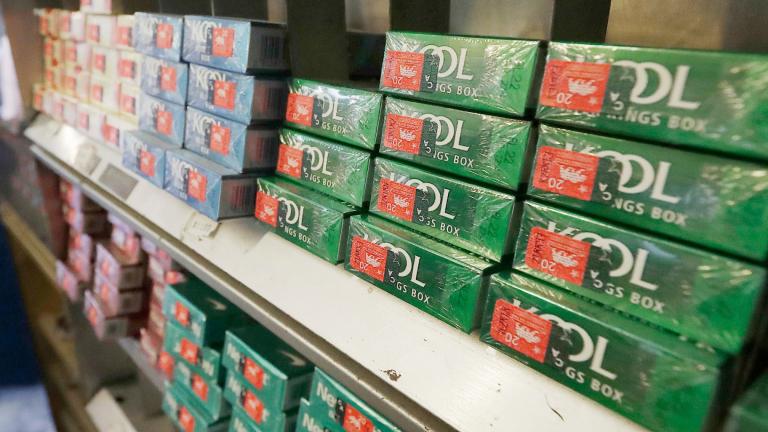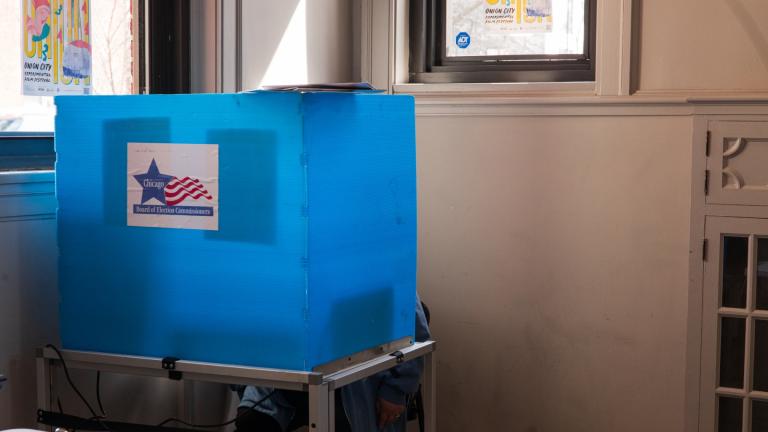By the end of the decade, all new cars in the U.S. will have to be equipped with technology that monitors for drunken and impaired driving.
The $1 trillion federal infrastructure package includes spending on construction projects and puts the U.S. on the path toward transitioning to electric-powered and hybrid vehicles. It also contains a variety of safety provisions, including impaired driver monitors.
The National Highway Traffic Safety Administration was given a maximum of three years to come up with technology that would be able to detect impaired driving.
“What it would do is to be able to detect the things that are common to drunk and impaired drivers — eye movement, lane crossings — that would automatically either stop or move the car off the road. It also could include requiring before even starting a car, a breathalyzer test,” said U.S. Rep. Jan Schakowsky, (D-Illinois), who worked to get the safety measures included in the massive package. “And then the auto companies would have a maximum of three years to make sure that they’re in all new cars.”
Schakowsky said the key is that the detection system will be “passive,” meaning a driver doesn’t have to do anything.
Just how it will work isn’t yet determined; the technology is still in development.
“As the auto industry goes toward autonomous vehicles, and they’re testing vehicles without steering wheels, driverless cars, they’re talking about going all electric – this is doable,” said Stephanie Manning, government relations director for Mothers Against Drunk Driving. “The industry has some of the best and the brightest engineers in the world. Thousands of them, working on solutions to all kinds of problems, why not safety?”
For Sheila Lockwood of McHenry, it’s personal. In 2018, her son Austin was killed by a drunken driver, just weeks after his 23rd birthday
“I never want another family to have to go through what we’ve been through,” Lockwod said. “Losing Austin destroyed our lives.”
Passing laws that increase penalties for drunken drivers may prove to be a deterrent for some, but
Lockwood said requiring cars be equipped with devices that prevent impaired people from driving at all will save lives.
“Austin would still be here if that technology would have been on that vehicle. That vehicle never would have started, the person that murdered my son — and that’s the way that I look at it, because I do feel that it’s preventable, there is a conscious decision to get behind the wheel,” Lockwod said. “No one has the right to be on the road impaired and take another life. No one has that right. If you don’t want to wear a seat belt, unfortunately your life might be in danger. But driving impaired is completely different because now you put other lives at risk.”
The American Civil Liberties Union’s Jay Stanley has privacy concerns that thus far have not been addressed.
He says modern cars are “computers on wheels” that “spy” on their owners, capturing and sending data back to car manufacturers that can be forwarded to data brokers who sell the information.
“Modern cars are collecting information from the performance of the car itself to your location, to information from your entertainment system when you connect your phone to it,” Stanley said. “Even things like the weight of the driver and things like that are connected by modern cars.”
Stanley said the potential for sharing information about drivers’ bodies, including heart rate and other health conditions is a concern.
“One of the big questions here is not only what data is collected, but what happens to it and who gets access to it,” Stanley said. “It could be that the machine just takes video of you or other measurements and then just flushes them right out, doesn’t retain them at all … because if it is recorded now you’re talking about potential law enforcement access, you’re talking about it potentially being sent to the car manufactures or these shady data broker companies and used for who knows what?”
Stanley said that because Congress intended this as a safety measure, not a forensic one, there is no need for that data to be collected.
At this point, the law doesn’t contemplate those privacy concerns in any fashion.
Cathy Chase, head of Advocates for Highway and Auto Safety, said privacy concerns should be protected.
“Keep … in mind that you’re on public roadways. And you’re sharing the road, it’s not just I decided to glance at a text — you’re on the roadways with everyone, imperiling everyone else, so you don’t have the heightened expectation of privacy that one would in their own home for example, because you’re out on a public roadway,” Chase said.
She and advocates from MADD both say their objective is not to collect biometric information or other data, and that they will make that clear as they also ensure the U.S. Department of Transportation and other federal agencies.
Chase said a mandate is needed because even as auto companies put money, effort and energy into other technologies, they have allowed safety concerns to languish.
She also said concerns about systems driving up the price of new vehicles is a non-issue, because once it’s federal required, economies of scale will reduce the cost.
“We know that some of these systems be saving thousands of lives,” Chase said.
The Insurance Institute of Highway Safety estimates that once fully implemented, approximately 9,400 lives a year will be saved.
The ACLU’s Stanley says there are ways to protect privacy while also using the technology to prevent crashes and deaths, and that his organization will fight for those terms to be spelled out in law and rules.
Examples could include requiring law enforcement to obtain a warrant in order to access car data.
Manning said MADD’s goal is to prevent it from getting to that point in the first place.
“We’re interested in stopping crashes all together and from a privacy standpoint, we want to let people know, there really is nothing to be concerned about,” she said.
While MADD was originally focused on detection of blood alcohol content, Manning said the scope expanded to other forms of impairment given the increase in the use of recreational marijuana and “poly” use of booze and drugs.
MADD does not take a position on whether marijuana should be legal, just that those who use cannabis don’t get behind the wheel when impaired, she said.
“People at MADD, we’re not prohibitionists. We all want to make sure that our cars work. We’re not unreasonable. I think that sometimes we get this reputation,” Manning said. “We’re normal people who have experienced great loss and want to make sure that others don’t need to go through it.”
The earliest the impairment detectors will be in all new cars would be 2026, though it could takes years longer.
Other safety provisions contained in the infrastructure law will likely be rolled out first, like a mandate that new cars will have to come with the automatic emergency braking systems many luxury vehicles have now to prevent imminent crashes.
Newly manufactured vehicles in the not-too-distant future will also be required to have alert systems that go off if a child or pet is inadvertently left inside a hot car.
Follow Amanda Vinicky on Twitter: @AmandaVinicky








